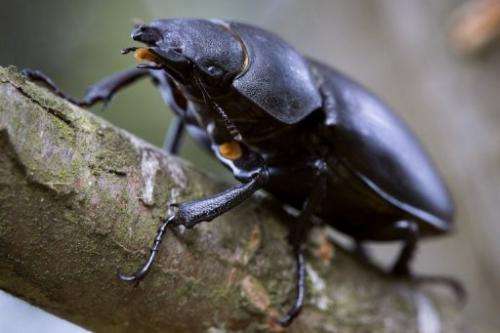Bugs are food of the future, UN says

Beetles, caterpillars and wasps could supplement the diets of billions of people globally and help feed livestock, the UN's Food and Agriculture Organisation said on Monday, calling for more investment in edible insect farming.
"One of the many ways to address food and feed insecurity is through insect farming," the report said, pointing out that insects were "nutritious, with high protein, fat and mineral contents".
"Insects are everywhere and they reproduce quickly, and they have high growth and feed conversion rates and a low environmental footprint," it said.
But the authors admitted that "consumer disgust remains one of the largest barriers to the adoption of insects as viable sources of protein in many Western countries".
It suggested that the food industry could help in "raising the status of insects" by including them in new recipes and putting them on restaurant menus.
The report also called for better regulation and mechanisation for using insects as feed—an industry that at present "cannot compete" with traditional sources of feed.
"The use of insects on a large scale as a feed ingredient is technically feasible, and established companies in various parts of the world are already leading the way," it added.
© 2013 AFP



















